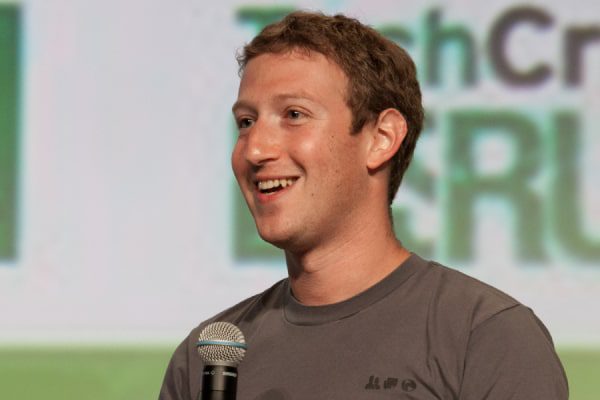Mark Zuckerberg: The Rise of the CEO of Facebook (5 P’s)
“Understanding people is not a waste of time.”
—Mark Zuckerberg
Your team is so crucial to the success of the company. As a leader, you’re responsible for steering everyone in the right direction. Duty calls to create a thriving work environment and to encourage all employees to produce the best work possible.
This year, Facebook celebrates its sixteenth birthday. With over 2.4 billion users, it is the largest social media platform that can be found on almost everyone’s smartphone. As it aims to connect the global population, the app has become a huge part of modern society.
Continuing the trend of successful college dropouts is Mark Zuckerberg. Dropping out of Harvard in his sophomore year to focus on Facebook, Zuckerberg co-founded the service along with some college mates. Today, he serves as not only the co-founder, but as its chairman, chief executive officer, and controlling shareholder.
Finding success at a very young age, the Facebook CEO became a billionaire at the age of 23 following the social network’s IPO in 2008. This move made him one of the youngest self-made billionaires of all time.
Regardless of your company size, there’s so much you can learn from this young billionaire. Let’s dive deeper into how he leads his employees and the management strategies that made him the social media juggernaut he is today.
The 5 P’s
If you’ve ever read the book Think like Zuck: The Five Business Secrets of Facebook’s Improbably Brilliant CEO Mark Zuckerberg, you would have come across the 5 P’s. Over the years, the social media magnate built his empire with a mentality that drives great leaders to build amazing businesses.
The 5 P’s described in the book are:
PASSION — Keep your energy and commitment fully charged at all times by pursuing something you believe in.
Zuckerberg once explained, “The question I ask myself like almost every day is ‘Am I doing the most important thing I could be doing?’”
Ever since he was a young boy, he’s always been passionate about designing programs where people got to interact with each other. This is what drove him to start Facebook.
If the work you do is something you believe in, it won’t feel like work at all.
PURPOSE — Don’t just create a great product, drive a meaningful movement.
Purpose goes beyond the product. In terms of Facebook, it’s not just a great product. Zuckerberg has a long-term vision that he’s driven about. He won’t stop until he’s fulfilled his purpose – which is to connect the global population through his social networking platform.
PEOPLE — Build powerful teams that can execute your vision.
The third P involves all the humans that will bring you closer to your vision. You’ve got to not only hire amazing people, but also those that align with the company’s culture and vision. You can do this by sifting through a ton of resumes and also by having a strict screening process. Make sure that they are qualified individuals and that they share the same values to be a team player.
PRODUCT — Create a product that is innovative, that breaks all the rules, that changes everything.
Having majored in Computer Science and Psychology, Zuckerberg has always had a deep understanding of the way humans technology. He prioritizes the problems of people first. In doing so, he’s been able to develop a product that fulfills the needs of its users.
More than 2 billion people around the globe are able to stay connected with each other. Moreover, they get to share updates and media with their own networks. There are also many other features that Zuckerberg has developed, putting Facebook far in front of other platforms.
Here are some of the innovative features he’s added to the social networking platform that has taken it further than what it set out to be:
- Facebook platform for developers
- Social Ads
- Facebook Messenger
- Facebook Graph Search
- Facebook Business Manager
- Facebook Marketplace
PARTNERSHIPS — Build powerful partnerships with people who fuel imagination and energize execution.
The saying that you can’t do things alone is often true. To be able to achieve great things, you’ll need a sidekick. Look at Steve Jobs and Steve Wozniak for example. Having a partner that shares the same vision as you gives you more motivation and purpose.
When it comes to Mark Zuckerberg, he’s got a great vision and tremendous creativity. But alongside Sheryl Sandberg, the Chief Operating Officer, things at Facebook have skyrocketed. A lot of its business success has been owed to Sandberg’s efforts. Although they have different strengths and weaknesses, they just seem to complement each other and it works.
As you’re moving along, always think about the right partnerships. It could be a business partner, supplier, distributor, producer, developer, or something else.
Office culture
Depending on your beliefs and interests, you’ll have to create an office culture suitable to you and your team. At Facebook, the young billionaire has a relaxed and open corporate culture that heavily emphasizes on diversity and equality. There are no physical constraints – no cubicles, no walls, just office furniture. Everything feels really open.
What’s really interesting is that the top guys in the company also don’t have their own offices. Zuckerberg and Sandberg occupy the same workspaces as the other employees. This emphasizes even more on his principles of openness and equality. Outside of that, Mark also holds 1 hour Q&A sessions every Friday. It gives employees the chance to voice their opinion and feedback on work-related matters. Giving them the freedom to be open encourages better teamwork and friendlier communication.

Another jaw-dropping factor is the dress code. In a superficial world where what you wear says a lot about you, people who work in high-level positions are often pictured wearing suits. Not at Facebook. Employees are allowed to wear T-shirts, jeans, and flip-flops to work! Besides being comfortable in whatever you want to wear, you’ll see another reason as you continue reading this.
Spend less time in the office compared to other CEOs
The social media tycoon doesn’t spend hours and hours in the office. According to some studies, working really long hours can affect your productivity levels. Instead, Zuckerberg spends a lot of time pondering about connecting the global population and bringing better products to the community.
Razor-sharp focus
“Once you know what change you want to make in the world, all of the tactics and strategies for how you do that just fit into that change,” said Zuckerberg.
If you are truly passionate about something, all those ideas will transform into focus. To start with, you’ll need to find that fire that’s going to drive you to make changes.
Don’t waste time on small decisions
Connected to one of his office culture principles, you’ve probably seen the grey shirt often worn by Facebook’s CEO. In fact, he wears the same type of shirt on a daily basis. He believes that dressing simply is not only comfortable, but it eliminates having to make small decisions.

Being so fixated on his vision, he wants to be using his energy on important decisions. Having to make fewer decisions, gives you more time to concentrate on priorities.
Be proactive, not reactive
With the way he manages his time, he tries to maximize his productivity and effectiveness. Rather than waiting for something to happen, he’d rather be proactive than reactive. When you’re reactive, you’re just waiting for something to happen. And when it does happen, it might waste your time reacting to it.
Don’t wait for something to happen. Be proactive and set out to accomplish goals each day.
Encourage your employees to correct you
A lot of CEOs might have a huge ego that intimidates their employees. But this is not the case with Zuckerberg. With the open office culture, he is not embarrassed about making mistakes and being corrected. He’d much rather have employees stand up and voice out.
That’s the whole point of being a team. If anyone in the team, including the leader, makes a mistake, he or she should be corrected.
Recognize and accept your mistake, then quickly move on
Many of the world’s most successful innovators say this as well. You’ve got to be able to fail and keep going. Don’t dwell on your mistakes. As humans, we’re bound to make mistakes. No one is perfect.
Have the courage to make mistakes because you will learn a lot from it. A lot of people play it really carefully as they focus on avoiding mistakes. Living life like this won’t get you out of your comfort zone. Playing it safe will give you fewer worries, but it will also limit your potential.
Taking calculated risks is okay
Zuckerberg has been risking it his whole life. Not many people have the courage to drop out of a great school like Harvard. But he did in his sophomore year. He saw the opportunity in Facebook and prioritized it. 
If you look into the other moves he made over the past few years, you’ll notice that he was not afraid of risk at all. Betting heavily on the future of going mobile, he got his company publicly listed in 2012. Not only that, but he also bought Instagram for $1 billion and WhatsApp for $19 billion. He took really big calculated risks.
Know when to say NO
As a leader, knowing when to say no is also crucial. For example, if you’re focused on something, in particular, try not to take on too many projects if you don’t have the infrastructure or resources to do so.
In Zuckerberg’s case, he was keen about venturing out of Facebook. But he learned his lesson. The young CEO developed a software called Wirehog. It was a service that allowed users to share media with each other. He envisioned this service to be integrated into Facebook.
Although he was really excited about this project, others opposed it. Sean Parker, who had experience working in Napster, advised him against it. However, Mark didn’t listen to anyone. He continued developing Wirehog and it launched in November 2004. After a few months, it wasn’t working out and the young leader had to make a tough decision. In the end, he shut down Wirehog and re-focused on building Facebook.
Acknowledge your weaknesses
Everyone has strengths and weaknesses. It’s only normal. If you are able to identify and acknowledge your setbacks, you’ll be able to improve. As a very young CEO, Mark said this to his team:
“It may not make you comfortable to hear me saying this, but I’m sort of learning on the job here.” – Zuckerberg on his role as a CEO during the early days
Honesty and transparency are values he embraces. What is really admirable is that he makes the effort to become a better leader as he learns from his experience. When he was only twenty-two and there were rumors going around that Facebook would get acquired, he started going for sessions with an executive coach. This taught him how to be a stronger leader during uncertain times.
As employees started to feel restless not knowing what the future held, he also organized more meetings with everyone as well as with the executive team. From this, he learned that candor is certainly one of the most essential leadership qualities.
What the Future Holds for the Facebook CEO
As we look back to the birth of Facebook, it was a social networking platform available for only Harvard students. After 16 years in existence, it has become a global success with one-third of the world’s population. With the acquisition of WhatsApp and Instagram, Zuckerberg has become a household name in the communications industry.
“I believe the future of communication will increasingly shift to private, encrypted services where people can be confident what they say to each other stays secure and their messages and content won’t stick around forever.” – Mark’s opinion on the future
The social networking mastermind aims to get the whole world on one communication platform. As he continues working towards this, there will also be extra emphasis on privacy. Take a look at how quickly Facebook jumped into “Stories”. Although Snapchat was the first to introduce this feature, Instagram and Facebook quickly adopted it as well. With “stories”, content only lasts for 24 hours. People don’t always want to have content saved on their profiles.

When users know that content will automatically expire, they feel more comfortable to share. Not only that, but you have the choice to save them in your archives if you want to. This provides a glimpse into the future that perhaps content expiration will be extended to all areas of communication, including private messaging.
Community

Congratulations on reaching the end!
Check out our podcast Impact Talks, where you can listen to high-profile experts from various backgrounds!
Join our Facebook Group Community with over 4,700 entrepreneurs, innovators, and creators by Startup Funding Event, where you get access to free live training, daily Q&As, design templates to get your business started, and support from the SFE team. Join here!




Leave a Reply
Want to join the discussion?Feel free to contribute!